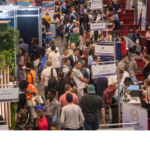Each building or owner has its own rules that you must follow as a tenant. All these rules are written in your lease. Before signing the lease, be sure to check the entire lease and learn about the rules so that you don’t have any problems in the future.
The lease specifies the following:
- Lease duration (usually 12 months)
- Amount of monthly rent
- Amount and time of possible rent increase
- What is included in the rent (for example, charging fees, parking, etc.)
Read the lease carefully
If you can’t fully understand something in the lease, or if it asks you to do something you won’t be able to do, don’t agree to it at all.
If you have trouble understanding the contents of the lease, ask the landlord to take it away for further reading and return it later.
What questions can the landlord ask?
- How much is your income?
- Do you work? where do you work?
- How many people are going to live with you and what are their names?
- Do you have a pet?
- Do you smoke?
- Can you give me a credit check?
- Can I talk to your previous landlord about you?
Questions the homeowner can’t ask
- Are you pregnant?
- Do you plan to have more children?
- Are you married, single or divorced?
- What is your ethnic, racial or religious background?
- What is your sexual orientation?
- Do you receive government assistance?
- how old are you?
- Are you a Canadian citizen?
Is it mandatory to give the social insurance number to the home owner?
Many landlords will want to check your credit before they rent their home to you. Many people think that having a Social Insurance Number (SIN) is necessary to do this, but according to Equifax, which is a Canadian credit research agency, this is not true.
A homeowner can check your credit history with information such as your full name, current address, and date of birth.
This means that giving SIN number for credit check is not mandatory and depends on you.
If a landlord insists that you must provide them with your social security number, you can either deny their request and not rent their apartment, or you can ask them how to protect your SIN number among their documents. will not be easily available.
Fill out the rental application form as completely as possible.
If the form is not complete, the landlord can use it as an excuse not to rent his house or apartment to you; For example, if you have never owned a home before, leave the special section in the application form blank and write that you have just arrived in Canada and do not have a reference in Canada.
If you have a reference in your country of birth, you can suggest it to the owner of the house. If you have filled out the application form well, this can be challenged later on by the landlord if he wants to reject you on false grounds.
If you have trouble filling out the application form, ask your landlord or real estate agent to take it away for further study and return it later.
In this way, you can take it to a friend and family member or a social activist and ask them for help in completing the form.

Required documents to rent
Landlords, before renting their unit to you, may ask you for references and documents showing that you are a responsible person and have enough money to pay the monthly rent.
They may ask you to:
- General information about where you live and work.
- A letter from your employer stating your annual income.
- A bank letter showing you have enough money to pay several months’ rent or containing information related to your credit check.
- A guarantor (someone who guarantees to pay the rent for the apartment if you don’t pay the rent, or move out of town).
- References (names and contact information of people who know you and can confirm that you are a good tenant, for example, previous landlords or friends).
New immigrants may have difficulties in providing these items. For reference, some of these immigrants turn to a government office, a social activist, or, for example, to their language teacher.
The rules for tenants and landlords in Quebec
- In the province of Quebec, you can stay in the house you rented for as long as you want if you pay the rent on time.
- If the house you donated is the owner’s only house and he or his family members intend to live in it, he can ask you to vacate the house.
- The owner of the house must announce the eviction six months in advance.
- Between 3 and 5 months before the end of the contract, you will receive a letter and you will be told the terms of the contract for the next year.
- If you do not intend to renew the lease with the new conditions, you have one month to inform, otherwise the contract will be renewed automatically with the new conditions.
- The important point is that if you intend to change the house, you must notify the contract before renewing it, otherwise you must look for someone to transfer the lease.
- If you do not agree with the new conditions but intend to stay, you must inform the building office in writing. If you agree, that’s great! Otherwise, you should contact the Régie du logement, the housing authority.
- The annual rent increase is 1% to 2%, but if major repairs are done, it can reach 3% to 6%.
- If the building you are in is sold, the contract will be transferred to the new owner and you do not have to leave the house (except for special circumstances).
- Normally there is no limit on the number of residents unless it is abnormally high (six people in a one-bedroom house!)
- The owner of the building can only force the tenant to leave the house if more than three weeks have passed since he paid the rent.
In order to be aware of your rights and duties as a landlord or tenant, you can visit the Régie du logement website.
What can be included in the rent?
In your lease, there may be items including rent that will be the responsibility of the owner. These items include the following options:
- Electric
- Hot water
- Internet
* Houses where all the bills are included in the lease and you don’t need to pay separately are called all-inclusive.
- Refrigerator
- stove
- Washing machine and dryer
- dishwasher
* Houses that include only basic appliances are called Semi Furnished.
- Television
- Furniture
- Kitchenware
- Etc
* Houses that include all the household items are called Full Furnished.


